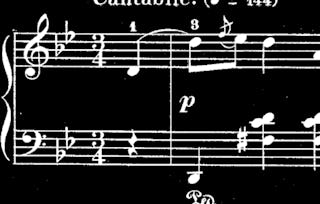This course is about how music works. It is about the relationship between the technical and aesthetic details of music. It is also about how developing a meaningful theoretical vocabulary can help you think and talk about musical style, and how learning that vocabulary can expand your appreciation for music.

Approaching Music Theory: Melodic Forms and Simple Harmony

Approaching Music Theory: Melodic Forms and Simple Harmony

Instructor: Marc Lowenstein
Access provided by Syrian Youth Assembly
58,081 already enrolled
169 reviews
Recommended experience
What you'll learn
Analyze the relationship between the technical details and aesthetics of music.
Explore how culture, psychology, physics, formal context, and a sense of play all shape musical language.
Discover ways in which music theory may be relevant to enjoying, communicating a love for, and performing music.
Demonstrate confidence in the kind of musical self-analysis that can help you develop your own musical ideas.
Skills you'll gain
Details to know

Add to your LinkedIn profile
See how employees at top companies are mastering in-demand skills

There are 5 modules in this course
This introductory module lets you know what is involved in the course. Come on in!
What's included
1 video9 readings
In this module, we will being to develop a vocabulary that is useful in describing the technicalities behind musical expression. To do this, we will start right away closely examining some actual, real music. First we will look at some Gregorian Chant (which, come on, can be stunningly beautiful). Second we will use some slow classic Jazz to thoughtfully build our vocabulary.
What's included
16 videos11 readings4 assignments3 peer reviews1 discussion prompt
In this module, still looking at single melodic lines, we will start to branch farther afield to describe some useful technical descriptions of the differences between different simple and complicated musical styles.
What's included
17 videos8 readings3 assignments6 peer reviews
Now we will start to describe different ways to think about playing pitches simultaneously. Carefully considering our terms, we will listen to a wide spectrum of styles before settling in to focus on the basics of common practice rules.
What's included
17 videos4 readings3 assignments3 peer reviews1 discussion prompt
Beginning with a fuller examination of cadences, we will come up with ways to describe chords and harmonic function that help us talk and think about different styles of music. Finally, we will consider how our newly constructed vocabulary can help us describe the function and aesthetics of more and more complete pieces of music.
What's included
18 videos3 readings2 assignments2 peer reviews
Instructor

Offered by
Why people choose Coursera for their career

Felipe M.

Jennifer J.

Larry W.

Chaitanya A.
Learner reviews
- 5 stars
81.06%
- 4 stars
11.83%
- 3 stars
2.95%
- 2 stars
0.59%
- 1 star
3.55%
Showing 3 of 169
Reviewed on Apr 15, 2020
Thank you for making the course as fun and relatable as possible! You really gave me a bigger picture idea of things and I can't wait to go deeper into the concepts we learned here!
Reviewed on Oct 14, 2023
I gained a lot of knowledge on musical terms in the course. However, it was challenging yet rewarding. Suitable for those with little experience and maybe basic music theory knowledge.
Reviewed on Mar 12, 2021
Excellent, challenging course which opens your eyes and ears to many genres of music. Wonderfully presented with humour and concise descriptive explanation. Thank you
Explore more from Arts and Humanities

Michigan State University

Berklee

The University of Edinburgh
¹ Some assignments in this course are AI-graded. For these assignments, your data will be used in accordance with Coursera's Privacy Notice.


